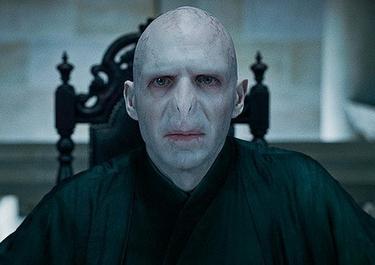
Introduction
Lord Voldemort, one of the most iconic characters in the Harry Potter series created by J.K. Rowling, embodies the archetypal villain whose quest for power and immortality has captivated readers and viewers alike. His character serves as a central figure in the narrative, representing the struggle between good and evil, fear, and the repercussions of unchecked ambition.
Character Background
Originally born as Tom Marvolo Riddle, Voldemort’s early life shaped his dark outlook on the world. Orphaned at a young age and raised in a Muggle orphanage, he exhibited signs of his magical abilities early on. His time at Hogwarts School of Witchcraft and Wizardry was marked by exceptional talent in magic and a growing fascination with dark arts. The transformation from Riddle to Voldemort was complete when he embraced his descent into darkness, changing his name to distance himself from his humble beginnings.
Significance in the Story
Voldemort’s actions set the stage for the major conflicts in the series. His rise to power and the subsequent terror he inflicted on the wizarding world serves as a catalyst for Harry Potter’s journey. As an embodiment of fear and prejudice, Voldemort’s views on blood purity led to a divide within the magical community, mirroring real-world issues of discrimination and hate.
The character’s quest for immortality through Horcruxes—a method of splitting one’s soul to evade death—highlights profound themes of mortality and the moral decay that accompanies the thirst for power. The concept of Horcruxes has intrigued fans, leading to extensive discussions and analyses of their implications within the Harry Potter lore.
Impact on Culture
Beyond the books and films, Voldemort has permeated popular culture, symbolising ultimate evil. His unique visage, combined with his chilling name, has become synonymous with villainy in modern storytelling. Numerous parodies, fan arts, and merchandise further illustrate his enduring popularity. Scholarly discussions have emerged about the character as a representation of fascism and tyranny, reflecting societal fears and the human condition.
Conclusion
Lord Voldemort’s character remains a profound figure in the Harry Potter universe, serving not only as an antagonist but also as a means of exploring deeper moral questions. His legacy continues to resonate with audiences, reinforcing themes of bravery, loyalty, and the battle against darkness. As the Wizarding World expands through new stories and adaptations, Voldemort’s impact is expected to linger, reminding us of the choices we make and the inherent struggles between light and darkness.
You may also like

The Importance of Storytelling in Modern Society

Understanding the Fall Season: Change, Beauty, and Tradition
